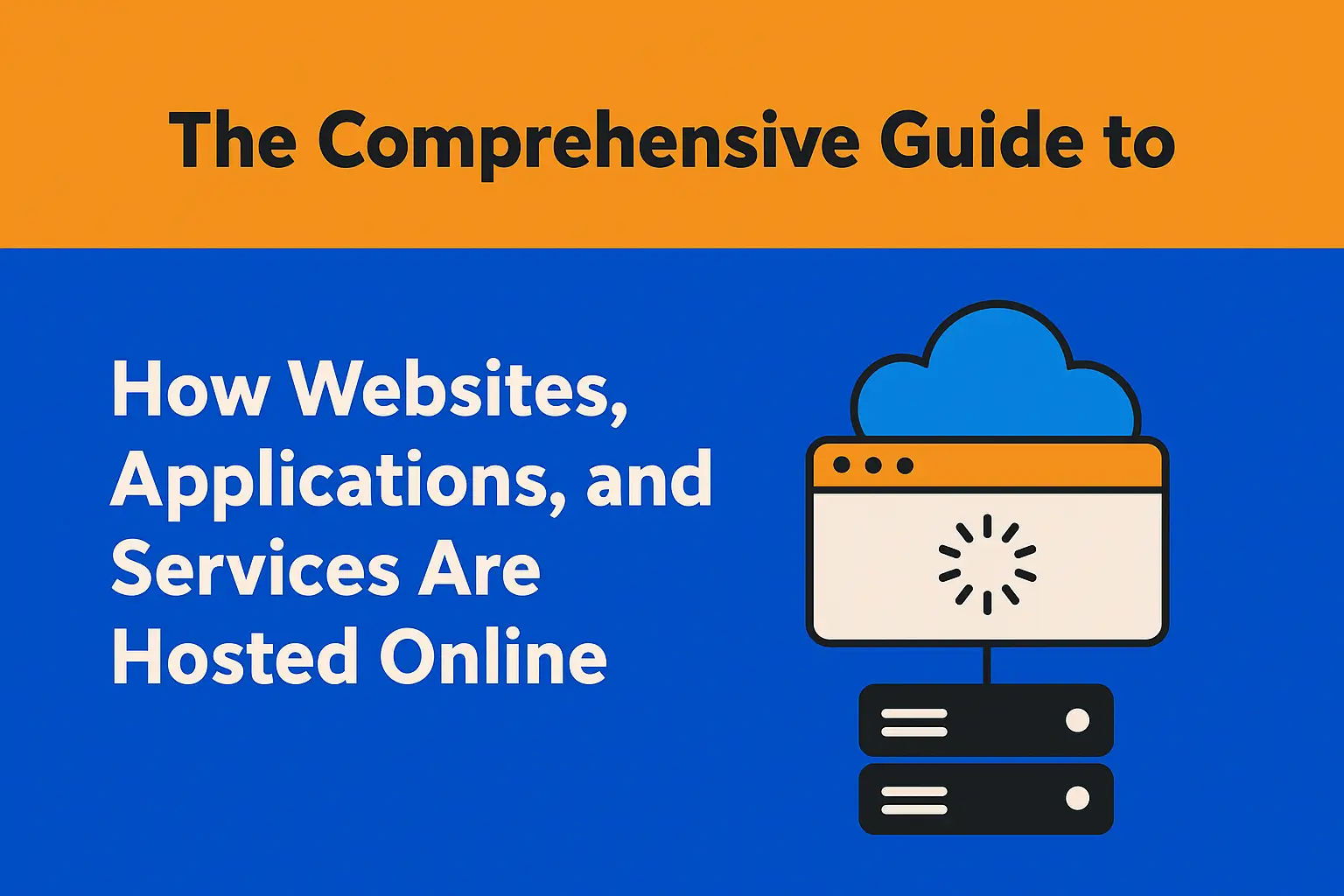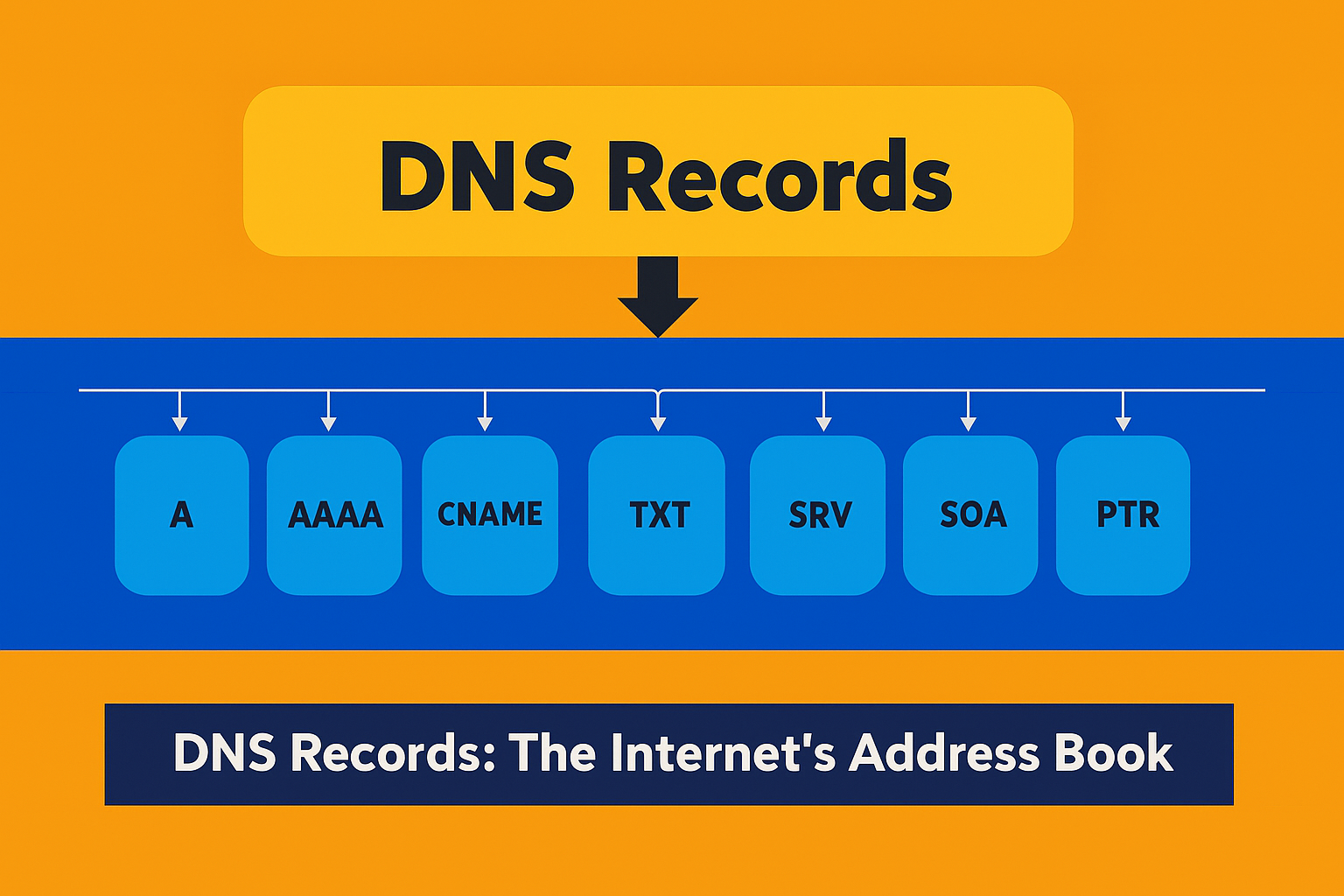
Introduction to Akamai
Akamai Technologies is a pivotal entity in the realm of internet infrastructure, significantly influencing how digital content is delivered and secured. Founded in 1998 by MIT scientists Tom Leighton and Daniel Lewin, Akamai has since pioneered advancements in content delivery networks (CDNs) and web performance optimization. What began as a solution for congestion management on the internet has evolved into a comprehensive service framework that enhances speed, security, and reliability for countless websites and applications worldwide.
Akamai’s historical trajectory is marked by continuous innovation and adaptation to the dynamic needs of the digital age. Initially targeting the core challenge of network overloads, the company’s early focus was on distributing static content closer to users to minimize latency. Over time, Akamai expanded its capabilities to include dynamic content acceleration, edge computing, and superior cloud security measures.
One of Akamai’s significant developments is its intelligent platform, which operates as a globally distributed network of servers. This platform ensures that vast amounts of internet traffic are efficiently managed, enhancing user experiences by reducing load times and mitigating risks associated with data breaches and cyber-attacks. As a result, Akamai plays an essential role in the backend of many online services and applications, facilitating seamless and secure transactions for millions of users daily.
Today, Akamai is recognized as a global leader not only in CDN services but also in robust cloud security and advanced web performance solutions. The company’s innovations help businesses optimize their operations, safeguard their digital assets, and deliver content expediently irrespective of geographic distances. Understanding Akamai’s evolution and its technological contributions is critical for grasping its significant impact on the digital landscape.
The Role of Content Delivery Networks (CDNs)
Content Delivery Networks (CDNs) represent a fundamental component of contemporary internet architecture, underscoring their pivotal role in enhancing the rapid and reliable delivery of web content. At their core, CDNs comprise a geographically dispersed network of servers designed to cache and deliver digital content to end-users, thereby minimizing latency and optimizing performance. By positioning content closer to the user through localized edge servers, CDNs ensure quicker access and reduced load times, which are imperative for a seamless online experience.
One of the primary functions of a CDN is to expedite the transfer of web content, which includes HTML pages, stylesheets, JavaScript files, images, and videos. When a user requests a piece of content, the CDN directs the request to a server geographically close to the user’s location. This proximity drastically reduces the distance that data must traverse, diminishing latency and improving overall speed. The distributed nature of CDNs also enables efficient load balancing, distributing incoming load requests across multiple servers, which bolsters reliability and maintains performance even during traffic surges.
Moreover, CDNs play a critical role in ensuring reliable content delivery. By mitigating single points of failure and distributing content redundantly, CDNs enhance overall network resilience. In the event of a server or network outage, CDNs can reroute traffic to alternative servers, minimizing downtime and providing a continuous service experience to users. This redundancy is particularly vital for high-availability services such as e-commerce platforms, where downtime can equate to significant revenue loss.
CDNs are also heavily utilized in the streaming media industry. As video consumption rises, the demand for high-quality, uninterrupted streaming services has grown. CDNs enhance streaming performance by distributing media files close to the user, reducing buffering times and facilitating smooth playback. Similarly, for mobile content delivery, CDNs optimize performance across various networks and devices, ensuring uniform user experiences irrespective of location or device specifications.
Overall, the essential role of Content Delivery Networks cannot be understated. They not only enhance speed and reliability but also support a multitude of applications that sustain modern internet services. From streaming media and e-commerce platforms to mobile content delivery, CDNs are integral to the backbone of secure and fast internet experiences.
Akamai’s Network Infrastructure
Akamai leverages an extensive and highly sophisticated network infrastructure to deliver its array of services. Central to this infrastructure are Akamai’s edge servers, strategically positioned in more than 4,000 locations across nearly 140 countries. This global distribution ensures that content is delivered swiftly, securely, and reliably, regardless of end-user location. By positioning servers close to end-users, Akamai minimizes latency, thereby significantly enhancing internet performance and user experience.
The scale of Akamai’s network is illustrated by its capacity to handle an average of 30 terabits per second of web traffic on any given day. This capacity peaks at significantly higher levels during major events, showcasing the network’s robustness and adaptability. The vast network is supported by over 300,000 servers, ensuring redundancy and minimizing the impact of localized outages or increased traffic demands. These edge servers cache content locally, thereby reducing the need for repetitive requests to origin servers, which further accelerates load times and improves the efficiency of content delivery.
Akamai’s network infrastructure is continuously optimized through real-time data analytics and monitoring. These practices allow for rapid scaling and adjustments to respond to varying traffic patterns and demands. For instance, during breaking news events, the network automatically adapts to provide the necessary resources to meet sudden spikes in traffic. This dynamic adaptability is a key component of Akamai’s performance guarantee.
Integrating security within its network, Akamai provides robust defenses against various cyber threats. By distributing security functions to its edge servers, Akamai effectively mitigates Distributed Denial of Service (DDoS) attacks and other forms of online threats before they reach the origin servers. This proactive approach not only enhances security but also preserves bandwidth and maintains high performance standards.
Overall, the vast reach and advanced capabilities of Akamai’s network infrastructure are pivotal to its role as a leading content delivery network. It ensures optimized performance, scalability, and security, enabling businesses and individuals alike to enjoy fast, secure internet experiences.
Enhanced Cybersecurity Solutions
Akamai is renowned for its comprehensive cybersecurity offerings that safeguard websites and applications from an array of online threats. One of the company’s flagship products, Kona Site Defender, plays a pivotal role in protecting against Distributed Denial of Service (DDoS) attacks, data breaches, and malware. By leveraging cloud-based, always-on protection, Kona Site Defender ensures that web applications remain secure and operational even under the most aggressive attacks.
In addition to DDoS mitigation, Kona Site Defender provides a robust Web Application Firewall (WAF) that shields mission-critical applications from sophisticated attacks in real time. This multi-layered approach ensures that threats are identified and neutralized before they can inflict damage, thereby preserving the integrity and availability of online services.
Another significant component of Akamai’s cybersecurity portfolio is the Bot Manager. This solution helps organizations manage bot traffic by distinguishing between beneficial and malicious bots. By accurately detecting and mitigating nefarious bot activities, Bot Manager prevents issues such as scraping, credential stuffing, and carding attacks, thereby enhancing overall security posture. This granular level of control not only secures digital assets but also optimizes user experience by minimizing unwanted traffic.
Real-world examples underscore Akamai’s efficacy in thwarting large-scale cyber threats. In one notable incident, Akamai successfully defended against one of the largest DDoS attacks ever recorded, with traffic peaks exceeding 1.3 Tbps. This attack aimed to disrupt services for a major international client, but Akamai’s advanced mitigation capabilities ensured uninterrupted service delivery. Such instances highlight the reliability and resilience of Akamai’s security solutions.
Overall, Akamai’s cybersecurity tools provide a fortified defense against an evolving threat landscape. Their holistic approach, which integrates advanced detection, mitigation, and management capabilities, ensures that enterprises can maintain secure and uninterrupted online operations even in the face of formidable cyber threats.
Web Performance Optimization
Akamai stands at the forefront of web performance optimization, offering a comprehensive suite of tools and services that enhance online experiences. One of the key offerings includes load balancing, which intelligently distributes incoming traffic across multiple servers. This not only helps prevent overload on individual servers but also ensures high availability and reliability by redirecting traffic to functioning servers during downtimes.
Image optimization is another pivotal service provided by Akamai. By dynamically adjusting image sizes and resolutions based on the user’s device and network conditions, Akamai ensures quick load times without compromising quality. This is especially crucial for e-commerce platforms and content-rich websites where high-quality visuals play a significant role in user engagement and retention.
Dynamic site acceleration (DSA) is a standout feature in Akamai’s arsenal. DSA leverages advanced techniques like route optimization, protocol optimizations, and caching to accelerate the loading times of dynamic content. This service is particularly beneficial for sites with frequent updates or personalized content, ensuring that users receive the most up-to-date information in the shortest possible time.
These performance optimization services collectively work to reduce latency, leading to faster page loads and a smoother browsing experience. This not only elevates user satisfaction but also encourages longer site visits and higher engagement rates. For businesses, these improvements translate directly into increased customer satisfaction and loyalty, boosting overall revenue and growth.
Ultimately, Akamai’s suite of web performance optimization tools helps businesses of all sizes meet the growing demands of today’s internet users. By ensuring quick load times and reliable service, Akamai empowers businesses to offer superior user experiences, which are critical in today’s competitive digital landscape.
Akamai in E-commerce and Digital Media
Akamai has positioned itself as a cornerstone for the e-commerce and digital media sectors by offering solutions that cater specifically to the unique demands of these industries. In a world where end-user experience directly impacts business success, Akamai’s Content Delivery Network (CDN) services are invaluable. E-commerce platforms, often experiencing surges in traffic during peak shopping seasons such as Black Friday and Cyber Monday, leverage Akamai’s robust infrastructure to ensure their websites remain operational and responsive. By distributing content intelligently across a global network, Akamai minimizes latency and maximizes uptime, ensuring that customers can browse and purchase without interruption.
Moreover, security concerns are paramount for online retailers. Akamai’s security solutions, integrated with its CDN services, protect e-commerce platforms from a myriad of threats including DDoS attacks, data breaches, and other cyber threats. With protocols in place to detect and mitigate these risks, businesses can operate with the confidence that sensitive customer information and transaction details are safeguarded. Additionally, Akamai’s Web Performance solutions enhance site speed and reliability, which are critical factors in reducing shopping cart abandonment and improving overall user satisfaction.
In the realm of digital media, Akamai excels by ensuring seamless streaming of high-quality content. Whether it’s a live sporting event, a webcast, or high-definition video on demand, buffering and lag can significantly detract from the user experience. Akamai’s adaptive bitrate streaming technology dynamically adjusts the quality of video streams in real-time based on end-user network conditions, ensuring smooth playback with minimal buffering. This capability is paramount for media companies aiming to meet consumer expectations of instant, high-definition content delivery.
By employing edge computing and advanced data analytics, Akamai further enhances its service offerings. This allows for more efficient content distribution and improved user experiences across all devices. In essence, Akamai’s tailored solutions for e-commerce and digital media not only boost performance but also foster trust and reliability, enabling businesses in these sectors to thrive amidst the ever-evolving digital landscape.
Case Studies and Success Stories
Akamai’s robust suite of services has consistently demonstrated its effectiveness across various industries, showcasing the breadth and depth of its capabilities. One notable example comes from the entertainment industry, where a major streaming service relied on Akamai to manage peak traffic during the release of a highly anticipated series. By leveraging Akamai’s content delivery network (CDN), the service successfully handled millions of simultaneous viewers with minimal latency, providing a seamless and high-quality viewing experience. Post-implementation metrics revealed a 45% reduction in buffering events and a 30% increase in viewer satisfaction.
In the finance sector, a leading global bank faced challenges with protecting its online platform from escalating cyber threats while maintaining a user-friendly experience. Akamai’s cloud security solutions, including Web Application Firewall and Bot Manager, were integrated to fortify the bank’s digital infrastructure. The result was a significant decline in denial-of-service attacks and a more secure, resilient online service. Customer testimonies highlighted improved transaction speeds and enhanced trust in the bank’s digital operations.
The healthcare industry has also reaped benefits from Akamai’s solutions. A large hospital network harnessed Akamai’s performance optimization services to improve the accessibility and reliability of its telemedicine platform. Prior to Akamai’s intervention, the platform suffered from slow loading times and frequent downtimes, particularly during peak usage times. Utilizing Akamai’s Intelligent Edge Platform, the hospital network achieved a 50% improvement in load times and a 40% increase in patient engagement, fundamentally transforming the delivery of healthcare services.
These case studies and success stories reflect the versatile application of Akamai’s solutions in addressing diverse, industry-specific challenges. Through concrete performance metrics and positive testimonials, it is evident that Akamai plays a pivotal role in enhancing digital experiences, substantiating its reputation as the backbone of secure and fast internet experiences.
The Future of Akamai
As the digital landscape continually evolves, Akamai Technologies is poised to remain a significant influencer in content delivery networks (CDN), cloud security, and web performance. Looking ahead, several emerging trends and innovations are likely to be pivotal for Akamai’s future trajectory.
Firstly, the shift to edge computing is increasingly transforming how data is processed and delivered. Akamai is expected to expand its edge offerings, enabling faster and more secure data processing closer to the end user. This will significantly enhance user experience by reducing latency and improving application performance.
Secondly, the importance of cloud security is anticipated to grow exponentially. With cyber threats becoming more sophisticated, Akamai’s robust security solutions will be even more critical in protecting data and applications. Continuous advancements in threat detection and mitigation will likely be at the forefront of Akamai’s strategy, ensuring enterprises can meet ever-evolving security demands.
Web performance will remain a key area where Akamai will likely make substantial strides. Innovations in AI and machine learning are expected to optimize content delivery further, ensuring seamless and faster online experiences. By leveraging these technologies, Akamai aims to anticipate user needs and deliver content more efficiently.
Speculatively, Akamai may explore integrating blockchain technologies to enhance security and transparency. Moreover, with the rise of the Internet of Things (IoT), Akamai could develop new solutions tailored to the unique demands of IoT ecosystems, ensuring secure and rapid data exchanges.
In conclusion, Akamai’s role in shaping the digital landscape will only deepen with these advancements. The company will continue to be a backbone of secure and fast internet experiences, paving the way for future innovations. As new technologies emerge and industry needs shift, Akamai’s strategic direction will evolve, ensuring it remains at the cutting edge of digital transformation.





0 Comments